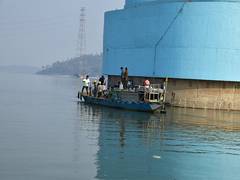President Murmu voices concern over increasing space debris
New Delhi, Aug 23 (PTI) President Droupadi Murmu on Friday voiced concern over increasing space debris as a result of numerous satellites being placed in orbit and lauded ISRO for setting itself a target to make future space missions debris free by 2030.
Murmu was speaking at the celebration of the maiden National Space Day celebrations to mark the first anniversary of the landing of India’s Chandrayaan-3 project.
“Space debris can cause problems for space missions,” she said during the event at Bharat Mandapam in New Delhi that was attended by Union minister Jitendra Singh, Indian Space Research Organisation (ISRO) Chairman S Somanath, engineers, ISRO scientists and representatives of the country’s nascent space industry.
The president appreciated the ISRO System for Safe & Sustainable Operations Management facility, which ensures continuous progress of space research activities.
“I am also happy to note that India is moving forward to make all its space missions debris free by 2030,” Murmu said.
The president presented awards to winners of the Robotics Challenge and the Bharatiya Antariksh Hackathon on the occasion.
The president said ISRO had made remarkable achievements in the space sector as well as invaluable contributions to the country’s social and economic development.
She appreciated the dedicated scientists who placed India’s space programme among the best in the world by using minimum resources.
Murmu also expressed confidence that the country would make continuous progress in space science and continue to set new standards of excellence.
The president said the progress of India’s space sector was extraordinary.
“Be it a successfully completed Mars mission with limited resources or the successful launch of more than a hundred satellites at once, we have made many impressive achievements,” Murmu said.
The president said space exploration had increased the capabilities of human beings and transformed imagination into reality.
“But space exploration is a challenging task. Research conducted to solve the problems during space exploration accelerates the development of science and improves human life,” she said.
The president said many sectors, including health and medicine, transportation, security, energy, environment and information technology, had benefited from developments in the space sector.
The president pointed out that with the opening of the space sector to private entities, the number of start-ups had increased at a very rapid pace.
“This has not only brought progress in space research but also given new opportunities to our youth to showcase and hone their talents,” Murmu said.
The president said she was happy to note that just a few months ago, an Indian company successfully launched a single-piece 3D-printed semi-cryogenic engine-powered rocket, the first such achievement.






